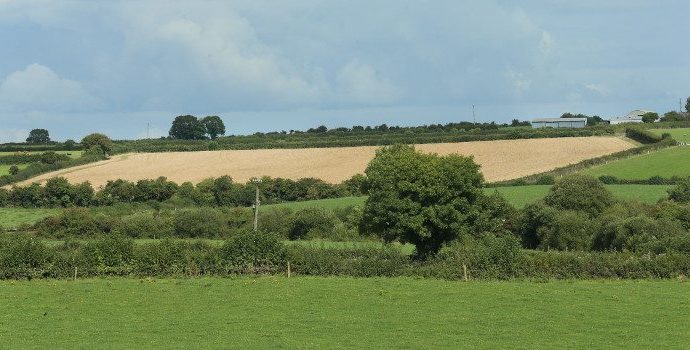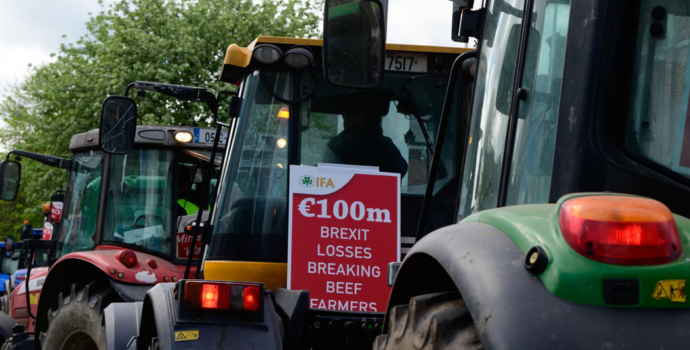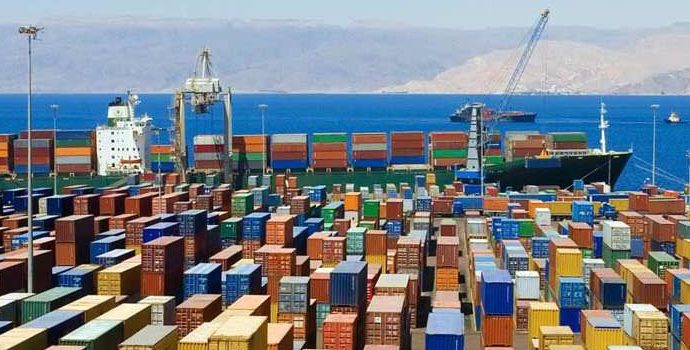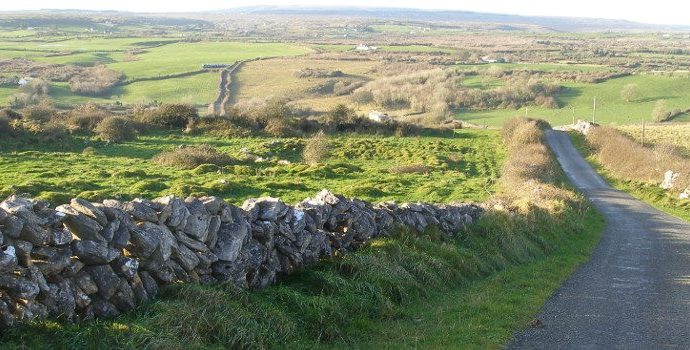Brexit Reports
Brexit Council Report October 2020

UK left EU on 31st January 2020
- UK leaves Single Market and Customs Union on 31st Dec 2020 & will not seek extension
- Two possible outcomes to EU-UK negotiations on a Free Trade Agreement from January 2021:
- No deal – significant risk: trade on WTO terms, ie EU agri-food exports to GB would face prohibitive tariffs. To maintain food supplies, UK would probably introduce tariff-free quotas, but EU exports would then be in direct competition with third countries, prices would fall and the value of the UK market would be substantially reduced.
- Limited FTA – at best: if both sides decide this is preferable to no deal.
- FTA on goods only – possibly zero tariffs & zero quotas with no deal on services
- May be unstable as UK tries to negotiate other trade deals and/or undercut EU.
- EU reserves right to apply retaliatory tariffs and/or quotas in response to unfair competition.
- Comprehensive FTA is impossible due to UK’s unwillingness to remain aligned to EU standards.
Preparedness
- Major changes from 1st Jan 2021: longer delivery times, increased administration and costs
- Government has launched Brexit Readiness Action Plan and ramped up publicity campaign for business and traders
- Customs checks & Controls: new EU and GB controls on imports from GB and EU
- Regulatory compliance checks: on imports by EU and UK authorities
- Rules of origin: these define the maximum amount of a good that can come from outside a free trade area. Goods imported into the EU from the UK will have to demonstrate their originating status to qualify under a future FTA or be subject to tariffs
- VAT: due on imports into the EU
- UK Landbridge implications for Irish food exports
- Dublin-Calais
- Landbridge RoRo takes 20 hours
- Direct ferry RoRo 40 hours
- Direct ship LoLo 60 hours
- Deal or no deal, serious disruption at cross-Channel ports is likely due to low levels of trader/haulier readiness and additional customs checks in France.
- In worst-case scenario, UK government estimates 30-50% of trucks would not be ready, traffic could be reduced by 20-40%, and 7,000 trucks could be held up in Kent for up to two days, with the disruption lasting up to three months
- EU draft agreement will give Irish food exports access to “green lanes” on arrival from the UK into continental EU ports to speed up their progress.
- There is no UK agreement to allow Irish trucks avoid tailbacks on the UK side.
- Dublin-Calais
UK legislation to override NI Protocol (part of Withdrawal Agreement)
- UK seriously damaged Irish and EU trust by introducing UK Internal Market Bill and expected Finance Bill to allow Ministers decide which goods shipped from GB to NI would be subject to tariffs due to risk of entering RoI/EU, issues around EU state aid rules and export declarations.
- UK move also badly received in US, with Democratic leaders warning that they were prepared to block a US-UK trade deal
- EU has launched legal action against the UK over its legislation, which would break international law, however negotiations are continuing as the EU does not want to be accused of walking out.
- EU position is there will be no FTA without full respect for the NI Protocol & WA
NI Protocol
- Part of WA
- Purpose is to avoid a hard border in Ireland
- Takes effect 1st Jan 2021, deal or no deal
- Requires EU Customs and SM rules to apply to all goods entering NI from GB
- EU tariffs to apply, unless goods are not at risk of entering the Republic.
- UK is to expand infrastructure for SPS checks at NI ports on animals and agri-food and some new customs processes.
- UK says NI businesses will have unfettered access to GB, – has not set out how NI and RoI goods are to be identified.
EU-UK Negotiations on Future Relationship
- No real progress on key issues for EU: Level Playing Field, Fisheries & Governance.
- LPF – EU wants agreement on state aid and standards in agri-food, environment, climate change, taxation, etc. UK wants independence & rejects alignment with EU rules.
- Fisheries – EU wants a balanced, long-term solution. UK wants annual negotiations
- Governance – EU wants agreed governance and dispute resolution mechanisms comprehensive agreement covering all areas, rather than a series of stand-alone agreements
- 3rd Oct, UK and EU agreed to intensified negotiations, likely to run to end-Oct or early Nov.
Other developments
- Mairead McGuinness appointed EU Commissioner-designate for Financial Services, a significant area in future EU-UK relationship
- EU Brexit Adjustment Reserve worth €5bn (separate to CAP)
- To cover adverse consequences in member states & sectors worst hit by Britain leaving EU
- Commission to bring forward proposals in November.
- President has made it clear that Irish agriculture must benefit substantially from this fund.
- UK trade negotiations with US, Australia & New Zealand
- Japan deal agreed to replace EU-Japan FTA – reportedly UK has agreed to tougher restrictions on state aid than what it is offering the EU
- US trade deal unlikely this year
- Former Australian PM Tony Abbott appointed as UK advisor
- UK cabinet reportedly divided over access for hormone-fed beef, chlorinated chicken
- Government rejected Tory amendments to Agriculture Bill – would have required food imports to be produced to same standards applying to British farmers
- UK Global Tariff from Jan 2021 published. An EU-UK FTA would aim to eliminate tariffs.
- Based on EU common external tariff, mostly provides similar levels of protection
- Uses a 5-year average exchange rate of 83.6p (current rate 91p)
- GB Border Controls for EU Goods: to be introduced in 3 stages. (Does not apply to NI-GB trade)
- Jan 2021 – Standard goods: traders will have up to 6 months to complete customs declarations & pay tariffs. Live animals & high risk plants will require pre-notification, health documentation & be subject to physical checks at destination or other premises
- April 2021 – All products of animal origin (POAO), regulated plants & plant products will require pre-notification & relevant health documentation.
- July 2021 – For all goods, declarations & payment of tariffs required at point of importation. SPS commodities: increased physical checks & sampling now at GB border control posts
EU negotiating mandate (25th February 2020)
- Offers FTA with no tariffs and no quotas
- Conditional on level playing field and on terms of a fisheries agreement
- Agreement “should uphold common high standards, and corresponding high standards over time with Union standards as a reference point” in the areas of state aid, competition, employment, environment, climate change, relevant tax matters.
- Specific reference to not reducing standards re health and product sanitary quality in the agricultural and food sector[1].
- EU reserves right to apply autonomous measures to react quickly to unfair competition.
IFA Position
- IFA wants closest possible future trading relationship that maintains value of the UK market for Irish farmers, which in turn will ensure the stability of the EU food market.
- Three objectives:
- Tariff-free and quota-free access to the UK market
- Level playing field whereby the UK maintains corresponding standards on food safety, animal health, environment, etc and
- No return by the UK to a cheap food policy, so that their external tariffs and import quotas for sensitive products such as beef, butter and lamb do not undercut the EU.
- For GB trade to NI, IFA requires close SPS and customs checks and controls on all live animals and agri-food products
- NI must not become a back-door into the EU for UK’s sub-standard food imports.
See detailed draft policy paper IFA Brexit Emergency Plan on Irish and EU support measures.
Bryan Barry
Association Secretary




